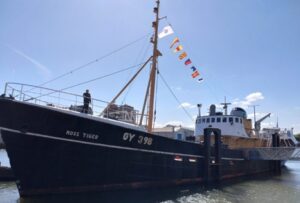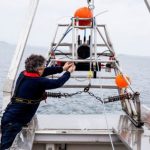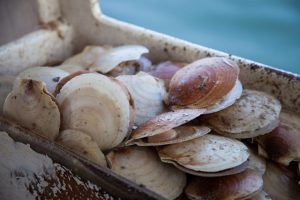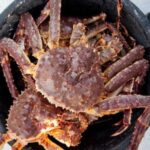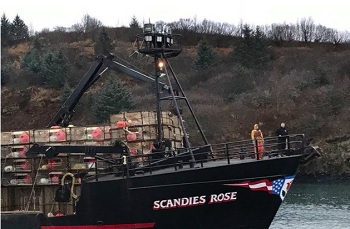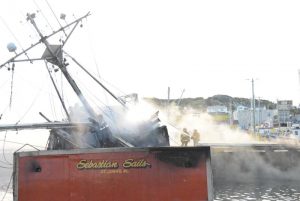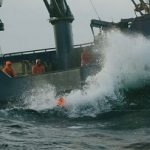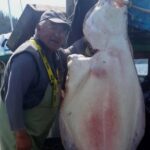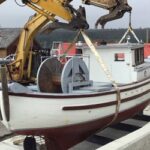Tag Archives: Seafood Harvesters of America
With little movement on salmon bycatch, Alaska advocates look to Biden administration for executive action
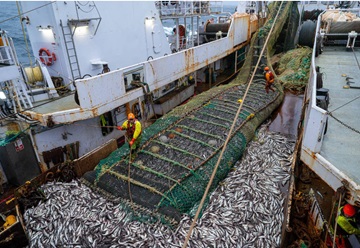 Amid catastrophic shortfalls in salmon harvests in some of Alaska’s rural, Indigenous communities, advocates have pleaded for a crackdown on unintentional catch of those same salmon by the trawl vessels that harvest billions of pounds of whitefish in the Bering Sea. But the politically appointed regional council that manages Bering Sea fisheries has largely resisted those requests. So instead, advocates are now taking another approach. They’re pushing the Biden administration for a workaround: a rewrite of the federal guidelines that tell the regional council, and its counterparts across the country, how to manage all the fisheries under their supervision. >>click to read<< 18:40
Amid catastrophic shortfalls in salmon harvests in some of Alaska’s rural, Indigenous communities, advocates have pleaded for a crackdown on unintentional catch of those same salmon by the trawl vessels that harvest billions of pounds of whitefish in the Bering Sea. But the politically appointed regional council that manages Bering Sea fisheries has largely resisted those requests. So instead, advocates are now taking another approach. They’re pushing the Biden administration for a workaround: a rewrite of the federal guidelines that tell the regional council, and its counterparts across the country, how to manage all the fisheries under their supervision. >>click to read<< 18:40

Fishery council executive directors warned Biden admin about dangers wind energy projects pose to fishing industry
In an Aug. 22 letter to former Bureau of Ocean Energy Management (BOEM) Director Amanda Lefton, the three officials, who respectively lead the New England, Mid-Atlantic and South Atlantic Fishery Management Councils, expressed concern about current processes for approving offshore wind development. They also made a series of recommendations to help the federal government mitigate impacts on fisheries. “As we have stated in several past comment letters to BOEM, we are very concerned about the cumulative impacts of multiple wind energy projects on the fisheries we manage,” they stated in the letter. “The multiple wind energy projects planned along the east coast will have cumulative and compounding effects on our fisheries.” >click to read< 08:32
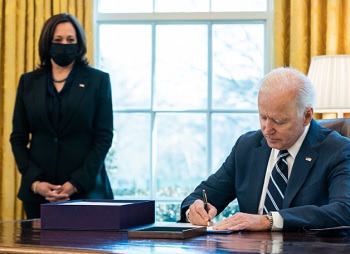
At-Sea Processors Association and Seafood Harvesters of America applaud “30×30” initiative
A Biden administration plan to conserve at least 30% of federal lands and oceans by 2030 is winning applause from the seafood industry, but questions abound elsewhere, raising political obstacles. Just about 12% of the nation’s land area is currently under some form of environmental protection, along with about 26% of the country’s ocean areas. The plan, an executive order issued by the Biden administration, and popularized as the “30×30” initiative, has won support from the harvester and processor sector of Alaska fisheries and others, (do you?) in that industry, but farmers and ranchers elsewhere remain skeptical. >click to read< 12:50
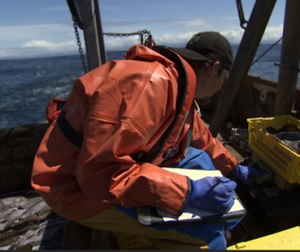
Fisheries across nation seeking monitor waivers
What began in the fisheries of New England has spread across the country. Fishing stakeholders from as far away as the West Coast and Alaska have joined Northeast commercial fishermen in pressuring NOAA Fisheries to extend — and uniformly apply — waivers from having to carry at-sea monitors and other observers on vessels while the COVID-19 pandemic still rages. The Seafood Harvesters of America, an umbrella organization that represents 18 separate fishing groups from Maine to Alaska, wrote to NOAA Fisheries and Department of Commerce officials this week to advance many of the same safety arguments against reinstating observers aboard commercial fishing vessels in the midst of the pandemic. >click to read< 16:30
US Senate candidate Nardolillo on Sheldon Whitehouse’s Conflicting Positions
State Rep Bobby Nardolillo, himself a candidate for the US Senate, reacted today to an announcement from the incumbent regarding Off Shore Drilling. On Monday, February 12th, Sen. Whitehouse will appear on the Bay Campus of URI to pledge his effort to prevent any off shore oil exploration in New England waters. Mr. Whitehouse will be joined at this announcement by Christopher Brown, President of the national commercial fishing organization, Seafood Harvesters of America. The plan appears to be that the Senator will cite potential degradation of fishing grounds as the driver for preventing oil exploration. “I was surprised to read the notice of this rally.” Rep. Nardolillo said. “Especially in view of our Junior Senator’s full throated support for the Deepwater Wind project, off Block Island.” >click to read< 12:46
The Plight of ‘Fish Delight’
 It’s the kind of headline meant to grab the attention of the president: “Say Goodbye to the Filet-O-Fish.” The New York Times op-ed by Bren Smith, Sean Barrett, and Paul Greenberg warned that the proposed cuts to the National Oceanic and Atmospheric Administration had implications for the pollock, the fish used in McDonald’s Filet-O-Fish, which Trump has lovingly called the “fish delight.”,,, Smith, Barrett, and Greenberg contend that the Trump administration’s proposed 17 percent cut in funding for NOAA and its subsidiary, the National Marine Fisheries Service, will have an adverse impact not only on the president’s sandwich, but also the fishing industry. ” ,,, The Seafood Harvesters of America, which represents the interests of commercial fishing (lol!),,, click here to read the story 08:37
It’s the kind of headline meant to grab the attention of the president: “Say Goodbye to the Filet-O-Fish.” The New York Times op-ed by Bren Smith, Sean Barrett, and Paul Greenberg warned that the proposed cuts to the National Oceanic and Atmospheric Administration had implications for the pollock, the fish used in McDonald’s Filet-O-Fish, which Trump has lovingly called the “fish delight.”,,, Smith, Barrett, and Greenberg contend that the Trump administration’s proposed 17 percent cut in funding for NOAA and its subsidiary, the National Marine Fisheries Service, will have an adverse impact not only on the president’s sandwich, but also the fishing industry. ” ,,, The Seafood Harvesters of America, which represents the interests of commercial fishing (lol!),,, click here to read the story 08:37
Seafood Harvesters of America oppose bill that re-examines fisheries allocations
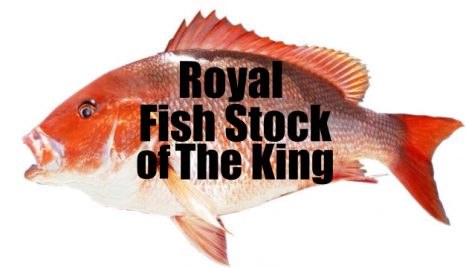 A new bill focused on recreational fishing has drawn strong opposition from the nation’s largest organization of commercial seafood harvesters. The Seafood Harvesters of America (Catch Share Club) claims that the bill would hamstring federal regional fishery councils’ ability to manage the fishery sector and most species, while also limiting the ability to innovate new solutions to overfishing. The bill was submitted April 6 and would change the Magnuson-Stevens Fishery Conservation and Management Act. It allows for alternative management of waters for recreational fishing, re-examines fisheries allocations and establishes exemptions to certain catch limits. The bill would require regular review of catch allocations, which recreational fishermen say have historically benefited commercial fishermen. The harvesters group released a statement late Sunday voicing concern about the Modernizing Recreational Fisheries Management Act of 2017. The bill was introduced by U.S. Reps. Garret Graves, R-La.; Gene Green, D-Texas; Daniel Webster, R-Fla.; and Rob Wittman, R-Va. click here to read the story 14:07
A new bill focused on recreational fishing has drawn strong opposition from the nation’s largest organization of commercial seafood harvesters. The Seafood Harvesters of America (Catch Share Club) claims that the bill would hamstring federal regional fishery councils’ ability to manage the fishery sector and most species, while also limiting the ability to innovate new solutions to overfishing. The bill was submitted April 6 and would change the Magnuson-Stevens Fishery Conservation and Management Act. It allows for alternative management of waters for recreational fishing, re-examines fisheries allocations and establishes exemptions to certain catch limits. The bill would require regular review of catch allocations, which recreational fishermen say have historically benefited commercial fishermen. The harvesters group released a statement late Sunday voicing concern about the Modernizing Recreational Fisheries Management Act of 2017. The bill was introduced by U.S. Reps. Garret Graves, R-La.; Gene Green, D-Texas; Daniel Webster, R-Fla.; and Rob Wittman, R-Va. click here to read the story 14:07
Don’t bite on risky lure of ‘catch shares’
 I can’t think of a more appropriate saying to use than “a wolf in sheep’s clothing” to describe the reality of what the Seafood Harvesters of America want to do with our offshore fisheries. The Post and Courier recently published an article and editorial that bought into the sheep’s clothing side. Year-round fishing and better fisheries data are touted. Who could be against that? But there’s a wolf: privatization of our fisheries through a scheme called “catch shares,” where fishermen and corporations are actually given ownership of our fisheries with shares that can be bought or sold like stock on Wall Street. That’s the real reason for the Seafood Harvesters of America’s existence. They’re working hard to ensure commercial fishermen own our fisheries, and in this case it’s our snapper and grouper, starting with a pilot program that could be considered by the South Atlantic Fishery Management Council and NOAA Fisheries next year. Read the op-ed here 08:02
I can’t think of a more appropriate saying to use than “a wolf in sheep’s clothing” to describe the reality of what the Seafood Harvesters of America want to do with our offshore fisheries. The Post and Courier recently published an article and editorial that bought into the sheep’s clothing side. Year-round fishing and better fisheries data are touted. Who could be against that? But there’s a wolf: privatization of our fisheries through a scheme called “catch shares,” where fishermen and corporations are actually given ownership of our fisheries with shares that can be bought or sold like stock on Wall Street. That’s the real reason for the Seafood Harvesters of America’s existence. They’re working hard to ensure commercial fishermen own our fisheries, and in this case it’s our snapper and grouper, starting with a pilot program that could be considered by the South Atlantic Fishery Management Council and NOAA Fisheries next year. Read the op-ed here 08:02
Electronic Monitoring — Straight talk about New England’s fisheries, Chris Brown, Bob Dooley
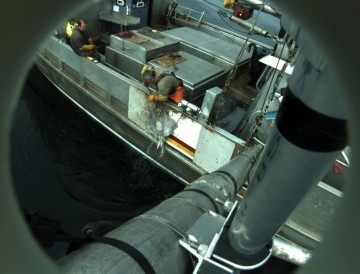 In any relationship, uncertainty and mistrust tend to circle back and magnify themselves over time. In the case of New England fishermen and federal regulators, the result is what we see today. These two parties — who can and should be working together to ensure the economic and environmental health of our fisheries — are deadlocked in mistrust while the fishing industry lurches between federal bailouts and major criminal busts. As fishing industry leaders with a combined seven-plus decades on the water, we know it doesn’t have to be this way. Chris Brown is president of both the Rhode Island Commercial Fishermen’s Association and the Seafood Harvesters of America. Bob Dooley is a lifelong commercial fisherman and former president of the United Catcher Boats, an association of Alaska pollock and whiting trawlers. Read the op-ed here 10:40
In any relationship, uncertainty and mistrust tend to circle back and magnify themselves over time. In the case of New England fishermen and federal regulators, the result is what we see today. These two parties — who can and should be working together to ensure the economic and environmental health of our fisheries — are deadlocked in mistrust while the fishing industry lurches between federal bailouts and major criminal busts. As fishing industry leaders with a combined seven-plus decades on the water, we know it doesn’t have to be this way. Chris Brown is president of both the Rhode Island Commercial Fishermen’s Association and the Seafood Harvesters of America. Bob Dooley is a lifelong commercial fisherman and former president of the United Catcher Boats, an association of Alaska pollock and whiting trawlers. Read the op-ed here 10:40
Shaheen Puts Focus of Senate Hearing on New Hampshire’s Struggling Fishing Industry with EDF!
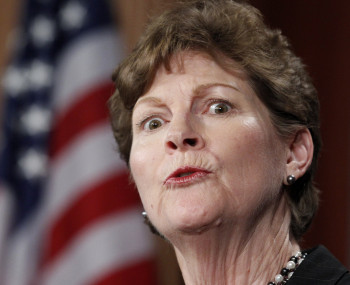 Washington, DC—Senator Jeanne Shaheen (D-NH), the lead Democrat on the Senate Small Business and Entrepreneurship Committee, has invited two prominent industry leaders in the New England fishing industry to testify at a committee hearing scheduled for Thursday. Through her leadership on the committee, Senator Shaheen was able to make New Hampshire’s struggling fishing industry a major focus of Thursday’s hearing. James Hayward of Portsmouth and Dr. Joshua Wiersma will testify at the hearing entitled “The Impacts of Federal Fisheries Management on Small Businesses” and can be watched online here beginning at 10:00AM. Read the rest here To Watch click here The Impacts of Federal Fisheries Management on Small Businesses 07:43
Washington, DC—Senator Jeanne Shaheen (D-NH), the lead Democrat on the Senate Small Business and Entrepreneurship Committee, has invited two prominent industry leaders in the New England fishing industry to testify at a committee hearing scheduled for Thursday. Through her leadership on the committee, Senator Shaheen was able to make New Hampshire’s struggling fishing industry a major focus of Thursday’s hearing. James Hayward of Portsmouth and Dr. Joshua Wiersma will testify at the hearing entitled “The Impacts of Federal Fisheries Management on Small Businesses” and can be watched online here beginning at 10:00AM. Read the rest here To Watch click here The Impacts of Federal Fisheries Management on Small Businesses 07:43
Red-snapper limits help Louisiana’s restaurants and economy: Brett Veerhusen and Haley Bittermann
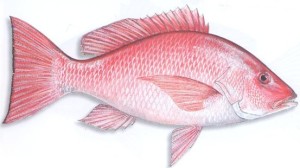 Louisiana catches about 1 billion pounds of seafood every year for commercial sale, and with the demand for local seafood at an all-time high, we rely on our nation’s fishery management process to ensure sustainable fisheries. Louisiana restaurants rely on locally sourced, sustainably managed seafood. Close to 70 percent of seafood harvested off the Gulf Coast is landed in Louisiana. Chances are your delicious plate of red snapper is from one of our many locally run Gulf fisheries. Read the rest here 10:13
Louisiana catches about 1 billion pounds of seafood every year for commercial sale, and with the demand for local seafood at an all-time high, we rely on our nation’s fishery management process to ensure sustainable fisheries. Louisiana restaurants rely on locally sourced, sustainably managed seafood. Close to 70 percent of seafood harvested off the Gulf Coast is landed in Louisiana. Chances are your delicious plate of red snapper is from one of our many locally run Gulf fisheries. Read the rest here 10:13
Seafood Harvesters of America “National Outreach Days,” in Washington D.C.
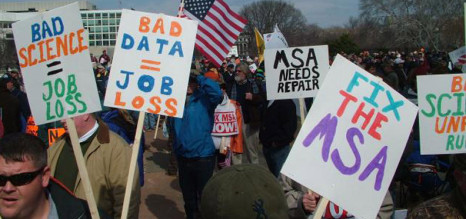 On April 28th the Seafood Harvesters of America will converge on our elected representatives to stay the course on a broken Magnuson Stevens Act. As other groups call for flexibility, the primarily catch share fishery group wants to maintain rigidity! The Seafood Harvesters are aligned with the likes of the Pew Charitable Trust, EDF, and the Nature Conservancy. House Resolution 1335, the Strengthening Fishing Communities and Increasing Flexibility in Fisheries Management Act will fix MSA. This is not why this group is in D.C. Read the rest here 10:33
On April 28th the Seafood Harvesters of America will converge on our elected representatives to stay the course on a broken Magnuson Stevens Act. As other groups call for flexibility, the primarily catch share fishery group wants to maintain rigidity! The Seafood Harvesters are aligned with the likes of the Pew Charitable Trust, EDF, and the Nature Conservancy. House Resolution 1335, the Strengthening Fishing Communities and Increasing Flexibility in Fisheries Management Act will fix MSA. This is not why this group is in D.C. Read the rest here 10:33
Charter captain refutes red snapper commentary
 The “scheme” discussed in the commentary by Mr. Brown (4-15-15 issue) is not that the five state plan will destroy the commercial fishery -far from it, as all the states fully understand the importance of the commercial fishery providing safe local seafood to the consumer. The “scheme” is from the many commercial red snapper IFQ (Individual Fishing Quota) owners who mislead the consumers, the seafood houses and restaurants about what they want to do with their commercially harvested red snapper. Read the rest here 08:16
The “scheme” discussed in the commentary by Mr. Brown (4-15-15 issue) is not that the five state plan will destroy the commercial fishery -far from it, as all the states fully understand the importance of the commercial fishery providing safe local seafood to the consumer. The “scheme” is from the many commercial red snapper IFQ (Individual Fishing Quota) owners who mislead the consumers, the seafood houses and restaurants about what they want to do with their commercially harvested red snapper. Read the rest here 08:16
Red Snapper scheme could destroy fishery
 If this scheme becomes law, it could soon become difficult or impossible to legally buy American Red Snapper. Retailers, restaurants and grocery stores will be simply unable to provide consumers with the genuine American Red Snapper that is increasingly popular across the country. Read the rest here 09:40
If this scheme becomes law, it could soon become difficult or impossible to legally buy American Red Snapper. Retailers, restaurants and grocery stores will be simply unable to provide consumers with the genuine American Red Snapper that is increasingly popular across the country. Read the rest here 09:40
A new organization boosts cooperative fisheries management
![]() This new organization, bringing together Seafood Harvesters of America and United Catcher Boats, has wide-spread support from New England and the Florida Keys to the Bering Sea in Alaska, including the Fort Bragg Groundfish Association. Read more here 12:47
This new organization, bringing together Seafood Harvesters of America and United Catcher Boats, has wide-spread support from New England and the Florida Keys to the Bering Sea in Alaska, including the Fort Bragg Groundfish Association. Read more here 12:47
Seafood Harvesters of America website. The common thread is catch shares ” Clearly, commercial fishermen have “the most to lose” in the formulation of fisheries policy,”

































